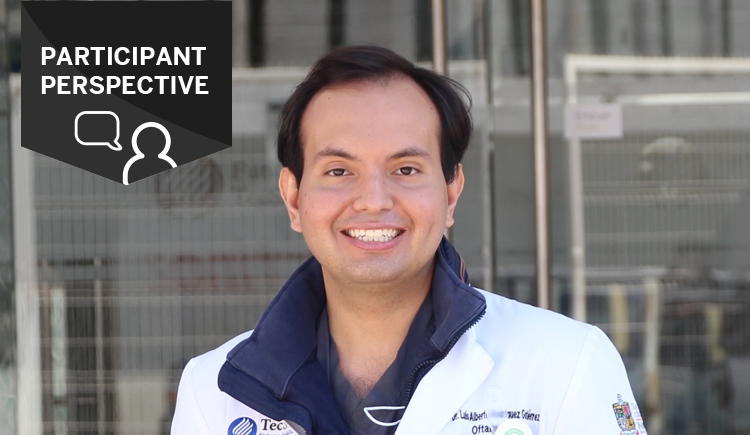
Clinical researchers today are making great strides in developing new treatments to address a host of common diseases and helping people live longer. Yet, the research process is fraught with challenges — from determining how to design effective proposals and successfully solicit funding in the increasingly cost-driven marketplace to tracking and applying analytics in a meaningful way to lead to better outcomes. For clinicians looking to build or further their research careers, engaging in advanced training on the basics of epidemiology, biostatistics, and clinical trial design, as well as learning how to put these skills into action, can give them an important competitive edge.
According to Ebrahim Barkoudah, MD, MPH, FACP, SFHM, attending training programs that build on the basics, clinicians learn in medical school — and that culminate in a capstone project that offers them a chance to put the theories into practice — can be invaluable.
The Growing Trend of Capstone Projects
He points out that a growing number of educational institutions today recognize the value of a capstone project. As such, they are providing scholars with this opportunity to actually carry out the skills and knowledge they learn in the classroom, providing first-hand experience to give them a step up in the workplace. While the scope of a capstone can differ from one institution to the next, most are multi-step projects that allow students to demonstrate their mastery of the course work in a simulated setting before they graduate. For researchers especially, this can be an important way to understand the process, timeline, and format required to develop observational and experimental clinical trials that can help move the field forward.
Building on a Clinical Research Foundation
According to Dr. Barkoudah, most physicians and clinicians received some cursory training in basic research principles while in medical and graduate schools. However, postgraduate training can build on this foundation by delving more deeply into the aspects of leading a successful research project, including the need for teamwork, writing grants for funding, and publishing the results in order to have more of an impact.
He says that some of the areas clinician-scientists and investigators can benefit from exploring in their capstone projects include:
- Advancing observational and clinical research using study design options, bias, confounding, and effect modification.
- Organizing, summarizing, and displaying quantitative data, using statistical software, measuring variability and confidence intervals, and interpreting results.
- Understanding and applying linear and logistic regression models for clinical research.
Regardless of what area it focuses on, a successful capstone project usually begins with the scholar developing a key question that they want to answer through a series of research steps. “At Harvard’s Global Clinical Scholars Research Training program, the scholars write a formal six-page grant proposal based on an original research question they develop,” Dr. Barkoudah explains. “Then, faculty and peers provide feedback on their work throughout the process. Once this is completed, the capstone project is ranked by a faculty panel,” he says.
Delving into Research Details through a Capstone
To demonstrate the range of topics researchers might explore through a capstone project, Dr. Barkoudah shares a few recent capstone project titles completed by scholars in the Global Clinical Scholars Research Training program: Effect of mobile app and visual plaque disclosing to motivate better oral hygiene in children: A randomized controlled trial; Cannabidiol and Residual Cell Function in Type 1 Diabetes and The comparison of personalized and convention antiplatelet therapy according to CYP2C19 genotype in ischemic stroke: A randomized control trial.
“Performing a capstone on these types of topics gives scholars a chance to practice the steps they will tackle on the job as a researcher, walking through the grant submission process. A well-designed capstone project will also integrate theory with real-world constraints and allow the scholar to demonstrate mastery of all of the skills needed for success and to show how they will advance their career in clinical research,” Dr. Barkoudah stresses.
Practice Makes Perfect for Researchers Preparing Funding Proposals
“Scholars need to know the right format in which to submit their proposals. It’s not just the idea, but they need to know the requirements to submit it since real funding agencies won’t take non-compliant proposals,” Dr. Barkoudah says, adding, “At Harvard Medical School, [as at many other schools] we have timelines and checkpoints so scholars know how and when to progress their efforts, and they learn when to do a peer review so they can see how their proposal holds up to reviewers.”
In addition, a capstone advisor reviews each scholar’s proposal and gives feedback, such as on how to improve the hypothesis, how to write the research methodology, and how to dissect the process and rearrange the material to be more effective.
Putting Capstone Learning into Action in Clinical Investigation
“Having a formal, well-thought out format and interacting with faculty helps scholars to sharpen their ideas and learn how to respond to constructive feedback,” he says. Scholars also learn how to work within teams, so they will be prepared to collaborate with other colleagues and pool expertise toward a common vision and goal.
“The capstone is a practical exercise for every scholar,” Dr. Barkoudah says. “ This is how they advance their grant writing and see how all of the steps come together in a coordinated way to improve their skills and ultimately position themselves for a long and successful research career.”
Written by Lisa D. Ellis


